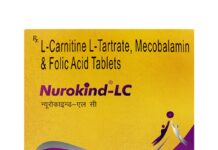 MUMBAI: The healthcare sector in India will grow to USD 158.2 billion in 2017 from USD 78.6 billion in 2012, a report has said.]
MUMBAI: The healthcare sector in India will grow to USD 158.2 billion in 2017 from USD 78.6 billion in 2012, a report has said.]
“The healthcare sector is growing at a 15 per cent CAGR and jumped from USD 45 billion in 2008 to USD 78.6 billion in 2012 and expected to touch USD 158.2 billion by 2017,” Equentis Capital said in its report.
India being a country with growing population, country’s per capita healthcare expenditure has increased at a CAGR of 10.3 percent from USD 43.1 in 2008 to USD 57.9 in 2011 and going forward this figure is expected to rise to USD 88.7 by 2015.
The factors behind the growth is rising incomes, easier access to high-quality healthcare facilities and greater awareness of personal health and hygiene, the report said.
The country’s healthcare system is developing rapidly and it continues to expand its coverage, services and spending in both the public as well as private sectors, it said.
The private sector has emerged as a vibrant force in India’s healthcare industry, lending it both national and international repute. Private sector’s share in healthcare delivery is expected to increase from 66 per cent in 2005 to 81 per cent by 2015. Private sector’s share in hospitals and hospital beds is estimated at 74 per cent and 40 per cent, respectively.
There is substantial demand for high-quality and speciality healthcare services in tier-II and tier-III cities.
To encourage the private sector to establish hospitals in these cities, government has relaxed the taxes on these hospitals for the first 5 years.
Many healthcare players such as Fortis and Manipal Group are entering management contracts to provide an additional revenue stream to hospitals.
Over the years, health insurance is gaining momentum in India; gross healthcare insurance premium is expanding at a CAGR of 39 per cent over FY’06-10. This trend is likely to continue, benefiting the country’s healthcare industry.
Strong mobile technology infrastructure and launch of 4G is expected to drive mobile health initiatives in the country. Mobile health industry in India is expected to reach USD 0.6 bn by 2017, the report said.
To standardize the quality of service delivery, control cost and enhance patient engagement, healthcare providers are focusing on the technological aspect of healthcare delivery.
Digital health knowledge resources, electronic medical record, mobile healthcare, hospital information system are some of the technologies gaining acceptance in the sector.
Going forward, the healthcare sector’s spending on IT products and services is expected to rise from USD 53 billion in 2012 to USD 57 billion in 2013.
Telemedicine is also a fast-emerging sector in India.
In 2012, the telemedicine market in India was valued at USD 7.5 million, and is expected to rise at a CAGR of 20 percent to USD 18.7 million by 2017. With increased private participation, the healthcare sector has also witnessed rise in FDI inflows. As per law, 100 per cent FDI is permitted for all health-related services under the automatic route.
Demand growth, cost advantages and policy support were instrumental in attracting FDI inflows into the healthcare sector. During April 2000 – March 2013, FDI inflows for drugs and pharmaceuticals stood at USD 10.3 bn, while inflows into hospitals and diagnostic centers, and medical appliances stood at USD 1.6 bn and USD 0.6 billion, respectively.
India’s primary competitive advantage over its peers lies in its large pool of well-trained medical professionals in the country. Also India’s cost advantage compared to peers in Asia and Western countries is significant – cost of surgery in India is one-tenth of that in the US or Western Europe.
India’s competitive advantage also lies in increased success rate of Indian companies in getting Abbreviated New Drug Application (ANDA) approvals. India also offers vast opportunities in R&D as well as medical tourism, the report said. -PTI






